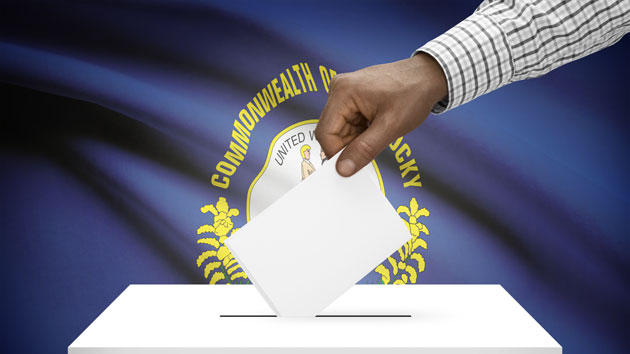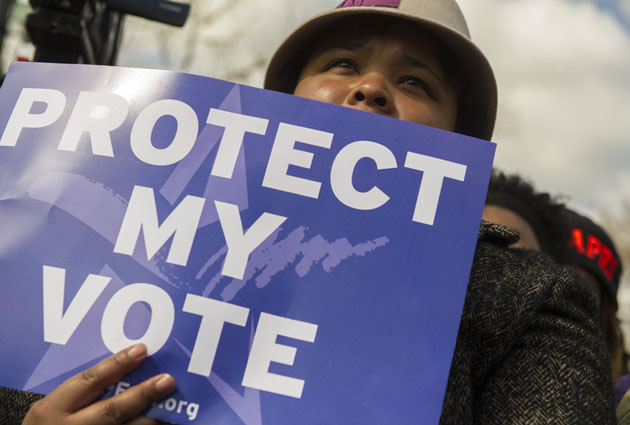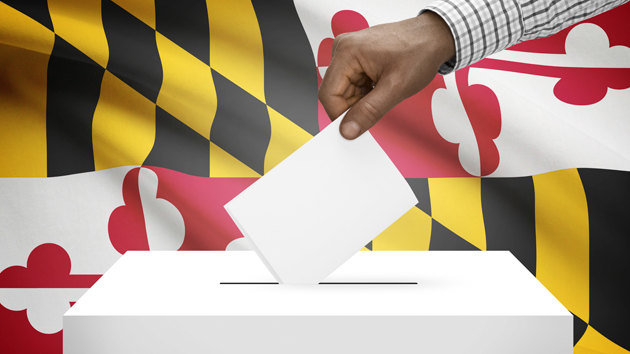
<a href="www.shutterstock.com/cat.mhtml?lang=en&language=en&ref_site=photo&search_source=search_form&version=llv1&anyorall=all&safesearch=1&use_local_boost=1&autocomplete_id=&search_tracking_id=AkHOj6lpTwPiFAYN8zEE3w&searchterm=voting rights&show_color_wheel=1&orient=&commercial_ok=&media_type=photos&search_cat=&searchtermx=&photographer_name=&people_gender=&people_age=&people_ethnicity=&people_number=&color=&page=1&inline=244411183">Niyazz</a>/Shutterstock
Outgoing Kentucky Gov. Steve Beshear signed an executive order on Tuesday immediately restoring voting rights to more than 100,000 ex-felons convicted of nonviolent offenses. Until now, Kentucky was one of three states, along with Iowa and Florida, that did not give ex-felons their voting rights back after they completed their sentences. “This disenfranchisement makes no sense,” Beshear, a Democrat, said in his announcement. “It makes no sense because it dilutes the energy of democracy, which functions only if all classes and categories of people have a voice, not just a privileged, powerful few. It makes no sense because it defeats a primary goal of our corrections system, which is to rehabilitate those who have committed crimes.”
The restoration does not apply to sex crimes, other violent crimes, or treason. Going forward, felons exiting the criminal justice system will be presented with a certificate indicating the restoration of their right to vote and to run for public office. Those who are already eligible must submit a form to get their rights back. The Brennan Center for Justice in New York estimates that 140,000 Kentuckians are now eligible for rights restoration, along with another 30,000 who will become eligible in the future.
A spokesman for Republican Governor-elect Matt Bevin told Insider Louisville that “restoration of voting rights for certain offenders is the right thing to do,” but he did not weigh in on the specifics of Beshear’s order. Beshear’s move is particularly significant because such restrictions on the franchise have disproportionately affected African Americans—often by design. Racial disparities in the criminal justice system are generally reflected in felon disenfranchisement rates, and Kentucky is no exception. According to 2010 census data compiled by the Sentencing Project, 5.5 percent of the state’s voting age population were disenfranchised due to a past conviction. But for African Americans, the number is 16.7 percent.
Beshear’s order comes after years of failed attempts by Kentucky lawmakers to address the issue. Because permanent disenfranchisement is in the state’s constitution, a change would require approval by 60 percent of lawmakers and by voters via a ballot referendum. In 2014, the effort stalled. The GOP-controlled state Senate wanted a five-year waiting period before ex-felons could apply for their rights, and the Democratic-controlled state House would not agree to it. Sen. Rand Paul of Kentucky, now a Republican presidential candidate, opposes disenfranchisement for ex-offenders and tried to revive the issue earlier this year.
Beshear said he waited until now to take executive action in order to give the legislative process a chance, according to the Louisville Courier-Journal. Bevin will be sworn in December 8.
Kentucky joins several states that have eased restrictions on felon voting since the mid-1990s. One of the exceptions to this trend is Florida, a perennial swing state where Democratic-leaning black voters are disenfranchised at an even higher rate than in Kentucky. In Florida, many ex-offenders must personally petition the governor and his cabinet for rights restoration. Under the current governor, Republican Rick Scott, Florida has made it very difficult for ex-felons to have their rights restored.

















